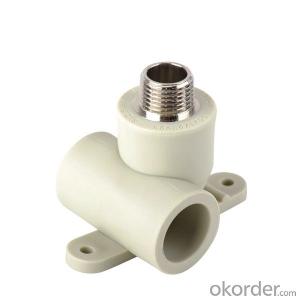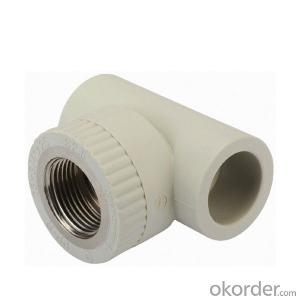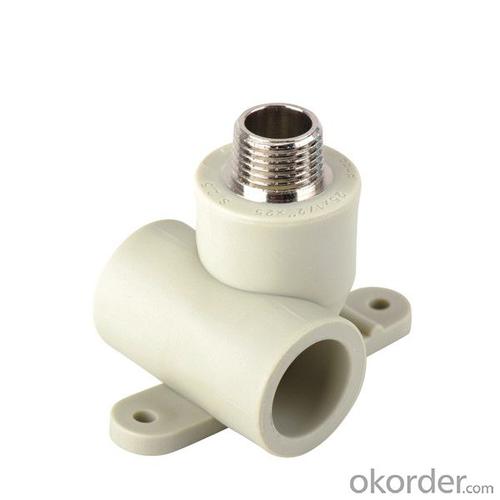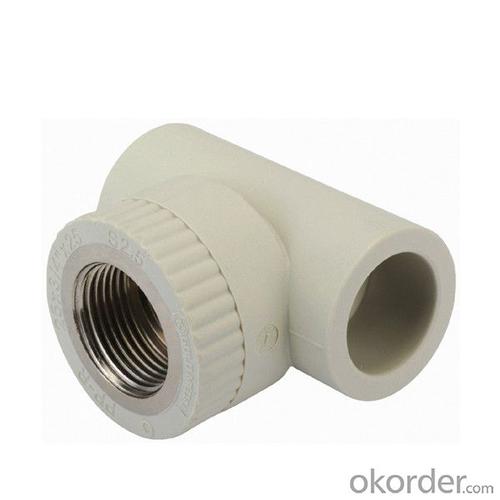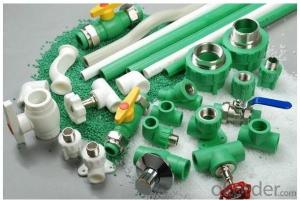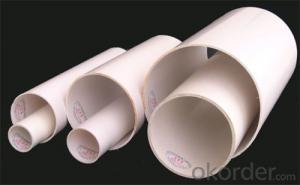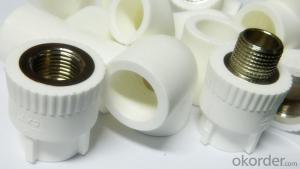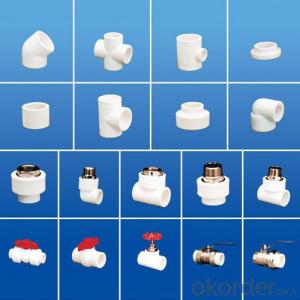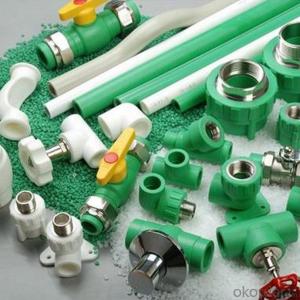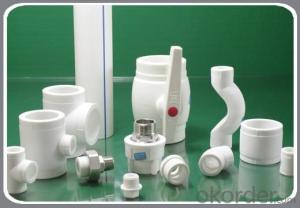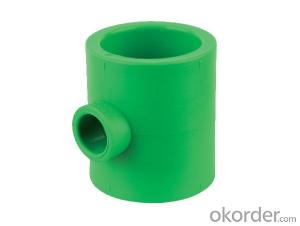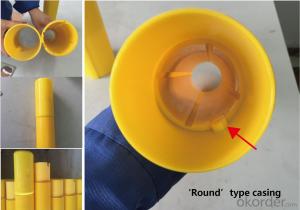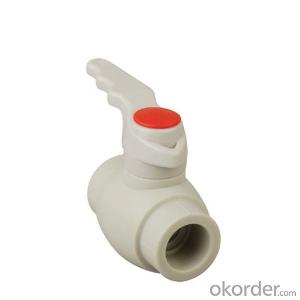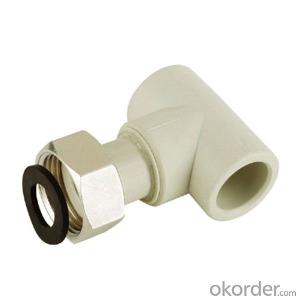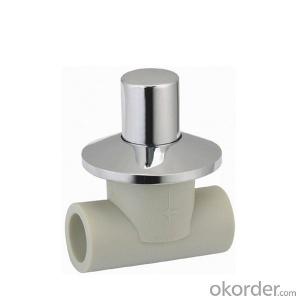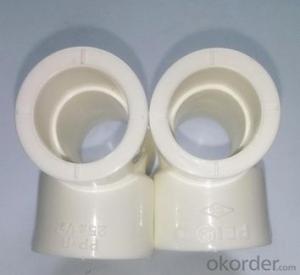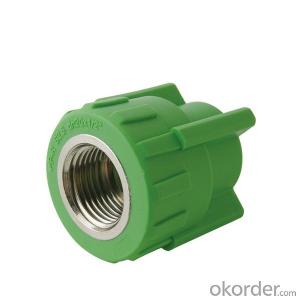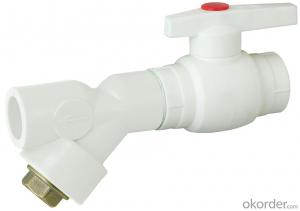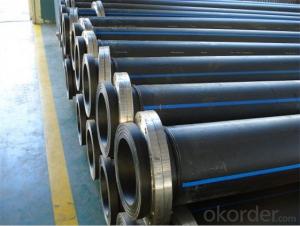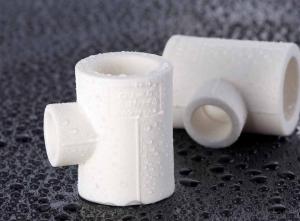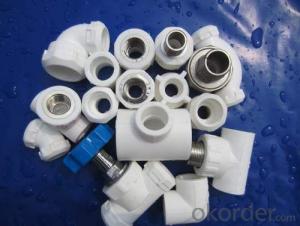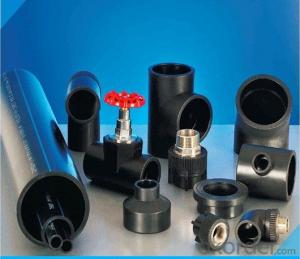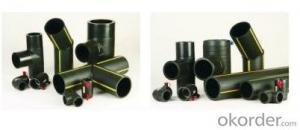ABS Plastic Pipe Fittings PPR Pipe Fitting Female & Male Union Ball Valve from China with Superior Quality 2024
- Loading Port:
- Tianjin
- Payment Terms:
- TT OR LC
- Min Order Qty:
- 1000 pc
- Supply Capability:
- 100000 pc/month
OKorder Service Pledge
OKorder Financial Service
You Might Also Like
Description of Products:
Place of Origin: Henan, China (Mainland)
Model Number: PE100
Material: PE
Specification: DN 20-mm~DN1200mm
Length: According to customer requirement
Thickness: SDR11/13.6/17
Standard: ISO
Color: many colors
Product name: Plastic Pipe
Application: house and garden
Usage: Family Decoration Industry
Certification: ISO Certificate
Feature: Lightweight
Size: Customized Size
Type: Round Pipe
Name: HDPE Plastic Pipe
Connection: Butt Fusion
PPR Pipe Size:
Normal Sizes for CNBM PPR Pipe | |||||
Outside Diameter(mm) | Wall Thickness(mm) | Package(m/bale) | |||
S5 PN1.25MPa | S4 PN1.6MPa | S3.2 PN2.0MPa | S2.5 PN2.5MPa | ||
20 | 2 | 2.3 | 2.8 | 3.4 | 120 |
25 | 2.3 | 2.8 | 3.5 | 4.2 | 120 |
32 | 2.9 | 3.6 | 4.4 | 5.4 | 80 |
40 | 3.7 | 4.5 | 5.5 | 6.7 | 60 |
50 | 4.6 | 5.6 | 6.9 | 8.3 | 40 |
63 | 5.8 | 7.1 | 8.6 | 10.5 | 24 |
75 | 6.8 | 8.4 | 10.1 | 12.5 | 16 |
Specification:
Nominal diameter: DN20-DN110mm
Wall thickness: 2.0-18.3mm
Nominal pressure: S5/S4/S3.2/S2.5( 1.25-2.5Mpa)
Product physical properties:
Longitudinal retraction rate: < 2%
Melt Flow rate(230℃, 2.16kg):<0.5 g/10min
Hydraulic pressure test:
( 20 ℃, Cyclic stress 16 mpa, 1 h) : No leakage ,No damage.
( 20 ℃, Test pressure 5.05 mpa, 1 h) : No leakage ,No damage.
Application:
1) Cold / hot water supply facilities for public buildings
2) Food, chemical, electronic industry pipeline networks; Such as Pipeline networks for transporting all kinds of corrosive liquids
3) Drinking water production system pipeline networks; Such as Pure water and mineral water
4) Air conditioning facility pipelines
5) Compressed gas pipeline networks for industry
6) Pipeline networks for swimming pools
7) Pipeline networks for solar energy facilities
8) Agriculture and garden production transporting systems
Company Profile:
CNBM International Corporation (CNBM International) is the most important trading platform of CNBM Group Corporation, a state-owned company under the direct supervision of State-owned Assets Supervision and Administration Commission of the State Council.
CNBM International is highly recognized by its business partners and clients all over the world and has obtained rapid development under the spirit of win-win. We will carry on the mutual beneficial, innovative and revolutionary trading structure as we did before, create value for our employees, share holders and clients and benefit the whole society in our future development.
Product Show:
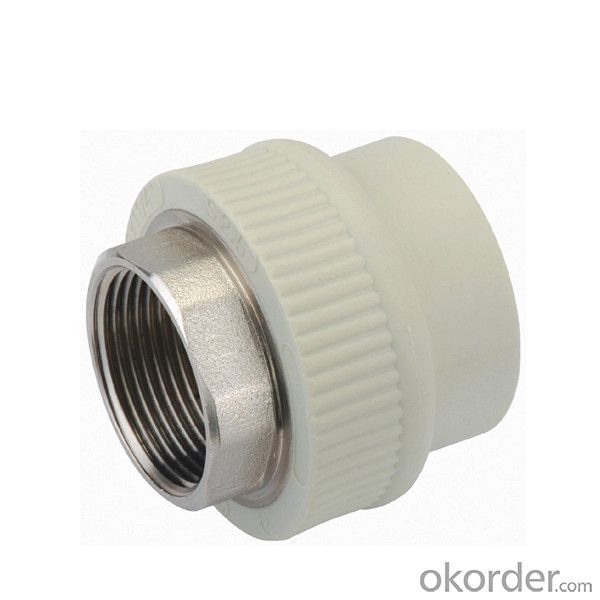
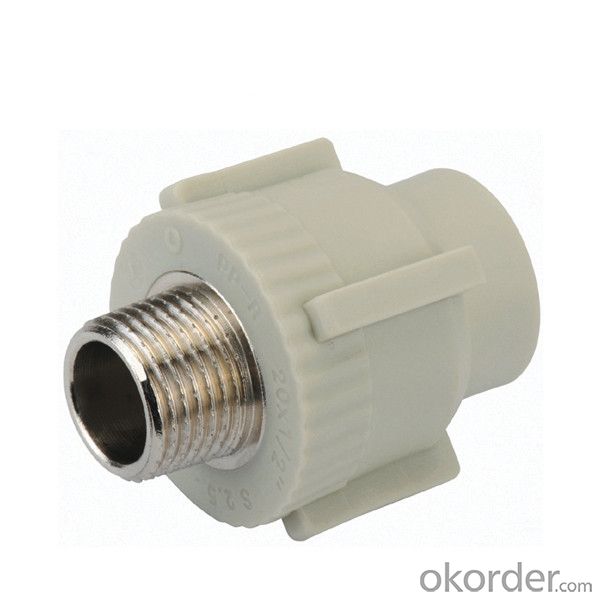
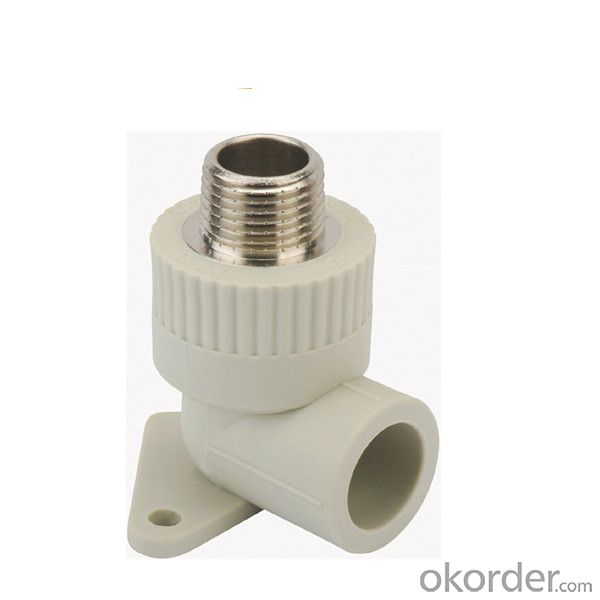
FAQ:
Q1: How Can I Get a Sample?
A1: You can get samples by communicate with our export sales.
Q2: How Long Is Delivery?
A2: Delivery time will be30-45days according to order quantity.
Q3: What Is The MOQ?
A3: MOQ depends on different items.
Q4: What Is Our Normal Payments Terms?
A4: Our normal payment terms now is: T/T, L/C or western union, MoneyGram.
- Q: How do plastic pipe fittings differ from metal pipe fittings?
- Plastic pipe fittings differ from metal pipe fittings primarily in terms of material composition and durability. While metal fittings are typically made of materials like brass, copper, or stainless steel, plastic fittings are made of PVC (polyvinyl chloride), CPVC (chlorinated polyvinyl chloride), or PEX (cross-linked polyethylene). Plastic fittings are generally more affordable, lightweight, and corrosion-resistant compared to metal fittings. Additionally, plastic fittings are easier to install as they often require simple solvent welding or compression techniques, whereas metal fittings may require soldering or threading. However, metal fittings are generally stronger and more durable, making them suitable for high-pressure or high-temperature applications.
- Q: Are plastic pipe fittings cost-effective?
- Yes, plastic pipe fittings are cost-effective. They tend to be less expensive than other materials like metal or copper, making them a more affordable option for plumbing and piping systems. Additionally, plastic fittings are durable and require minimal maintenance, reducing long-term costs.
- Q: Are plastic pipe fittings resistant to hydraulic fluids?
- Yes, plastic pipe fittings can be resistant to hydraulic fluids, depending on the type of plastic used. Some plastics, such as PVC (Polyvinyl Chloride) and CPVC (Chlorinated Polyvinyl Chloride), are generally resistant to hydraulic fluids. However, it is important to consult the manufacturer's specifications and guidelines to ensure the specific plastic pipe fittings chosen are suitable for use with hydraulic fluids.
- Q: Can plastic pipe fittings be used for irrigation systems in sandy soils?
- Yes, plastic pipe fittings can be used for irrigation systems in sandy soils. Plastic fittings are often preferred in irrigation systems due to their corrosion resistance, durability, and affordability. They can effectively withstand the sandy soil conditions without degradation or damage, making them suitable for use in such environments.
- Q: How do you repair a broken plastic pipe fitting?
- To repair a broken plastic pipe fitting, you can follow these steps: 1. Begin by turning off the water supply to the pipe to prevent any leakage or further damage. 2. Use a utility knife or PVC pipe cutter to cut out the damaged section of the pipe. 3. Ensure that the cut ends of the pipe are clean and free from any debris. 4. Take a new plastic pipe fitting of the same size and material as the original one. 5. Apply PVC primer to the outside of the pipe and the inside of the fitting, following the manufacturer's instructions. 6. Apply PVC glue to both the pipe and the fitting and quickly join them together, twisting slightly to ensure an even bond. 7. Hold the joint firmly in place for a few seconds to allow the glue to set. 8. Wipe away any excess glue and let the repair cure as per the manufacturer's guidelines. 9. Once the glue is fully cured, turn the water supply back on and check for any leaks. 10. If there are no leaks, the repair is successful, and the pipe fitting is now fixed.
- Q: Are plastic pipe fittings resistant to electrical conductivity?
- Yes, plastic pipe fittings are generally resistant to electrical conductivity.
- Q: Can plastic pipe fittings be used for irrigation systems in cold climates?
- Yes, plastic pipe fittings can be used for irrigation systems in cold climates. Plastic fittings are known for their durability and ability to withstand freezing temperatures. However, it is important to choose fittings made from materials that are specifically designed for cold weather conditions, such as PVC or polypropylene, to ensure they do not crack or break due to freezing temperatures. Additionally, proper insulation and drainage techniques should be employed to prevent water from freezing inside the pipes and causing damage.
- Q: Can plastic pipe fittings be used for landfill leachate collection?
- Yes, plastic pipe fittings can be used for landfill leachate collection. Plastic pipes and fittings are commonly used in landfill leachate collection systems due to their durability, resistance to corrosion, and cost-effectiveness. These fittings are designed to withstand the harsh conditions and chemicals present in leachate, making them a suitable choice for this application.
- Q: Can plastic pipe fittings be used in sewage treatment systems?
- Yes, plastic pipe fittings can be used in sewage treatment systems. Plastic pipes and fittings are commonly used in sewage treatment systems due to their durability, resistance to corrosion, and ease of installation. They are also cost-effective and can withstand the harsh conditions typically found in sewage treatment systems.
- Q: Are plastic pipe fittings resistant to hydrochloric acid?
- No, plastic pipe fittings are generally not resistant to hydrochloric acid.
Send your message to us
ABS Plastic Pipe Fittings PPR Pipe Fitting Female & Male Union Ball Valve from China with Superior Quality 2024
- Loading Port:
- Tianjin
- Payment Terms:
- TT OR LC
- Min Order Qty:
- 1000 pc
- Supply Capability:
- 100000 pc/month
OKorder Service Pledge
OKorder Financial Service
Similar products
Hot products
Hot Searches
Related keywords
